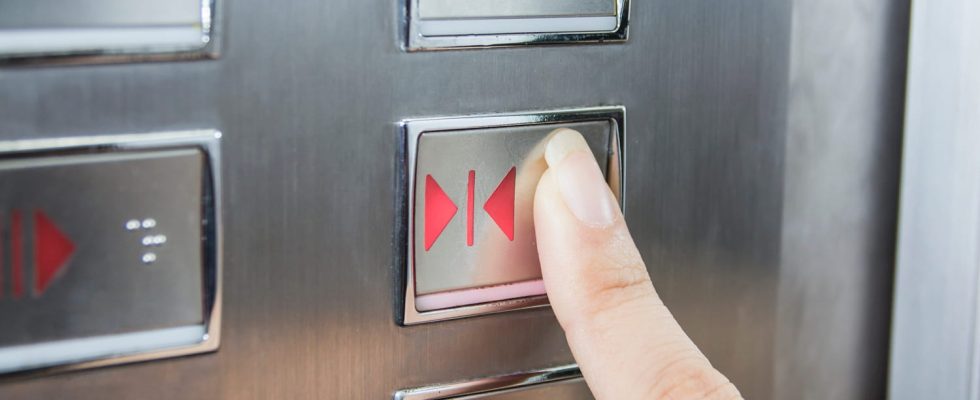You have certainly already had this experience. In a hurry, when getting on the elevator, you use the button used to force the doors to close and therefore to go up more quickly. And nothing happens…
Ever wondered if the force-close buttons in elevators actually work? You did well: the question deserves to be asked, in France, but also throughout the world. THE New York Times was the first to investigate, a few years ago, the question of these “placebo buttons”, which calm our nervousness by giving us the sensation of performing an action when it is nothing.
In the article, U.S. elevator industry executive Karen W. Penafiel explained that under an anti-discrimination law passed in the early 2000s, elevator doors had to be left open for a sufficient amount of time. long enough for people with reduced mobility to enter the aircraft. Thus, the buttons forcing the closing of the doors of elevators would have become obsolete for more than 20 years. First disconnected in the old models, they have gradually been removed in the new ones, but also, very often, replaced by dummy buttons!
These buttons, even inactive, would indeed “reduce stress and increase well-being”, in the words of Ellen J. Langer, professor of psychology at Harvard, also questioned about this “illusion of control”. which would be particularly sought after in elevators.
Very limited interest also in France
In France, it is The New Factory who researched whether elevator door close buttons were actually useful. Following exchanges with the companies Koné and Sodimas, the magazine established that many elevators in France were also equipped with these dummy closing buttons. The subterfuge is less widespread than across the Atlantic, but very real. L’Usine Nouvelle explains that the closing button function is certainly active in France, but not a priority.
“There are time delays and sensors that can cancel the maneuver,” explained Laurent Rousset, from Kone’s technical department, citing a 2003 law that prioritizes personal safety, door closing speeds, detection cells or even mechanical shocks. A set of things that pass before the doors close for people in a hurry. The building where the elevator is installed is also at stake: the closing of the doors will be faster for offices and slower for a hospital, for example.
Still, the close button can still allow a valid person to save a few seconds depending on the case. Conclusion: if you live in France you can keep pressing it, hopefully these will work.
